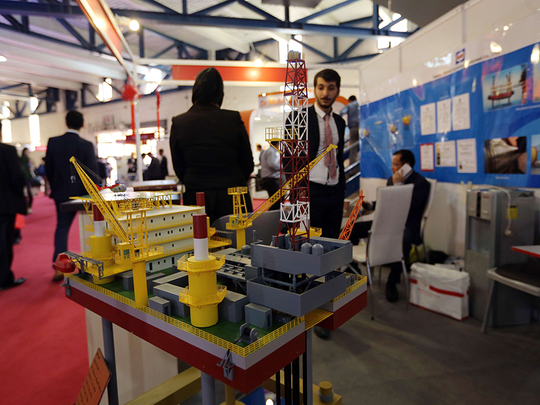
KUALA LUMPUR: Iran hopes its crude oil exports will return to pre-sanctions levels within three months once a deal with major powers to lift an oil embargo is finalised, the country’s deputy oil minister said on Monday.
“We hope we can come back to the export levels that we had before the sanctions,” Rokneddin Javadi, who is also the managing director of the National Iranian Oil Company, told Reuters.
“Yes, 2.5 (million barrels per day), around,” he said, adding that this could be achieved in about three months.
A recent framework deal on Iran’s disputed nuclear programme between Tehran and world powers could see sanctions on Iran eventually lifted if a more permanent pact is finalised by a June deadline.
The sanctions have more than halved Iranian oil exports since 2012 to about 1 million bpd, mainly to Asia.
Javadi said the Opec producer expected to claw back lost market share in Asia.
“It depends on market situation and price level, but we will come back to the traditional trade that we had before,” he said, adding that Asia could take more than 50 per cent of Iran’s exports.
Global oil prices touched 2015 highs in early May, but are currently only around half the peaks of June 2014, before a worldwide supply glut and a decision by the Organisation of Petroleum Exporting Countries to maintain output sent crude markets tumbling.
Asked if Opec would cut output at the upcoming June 5 meeting, Javadi said: “I don’t think so.” Discussions on Opec making room for the return of Iranian oil would depend on whether sanctions were lifted, he said.
Iran has repeatedly called for Opec to cut output to support prices and says that an increase of its oil production will not cause a price crash. It expects other Opec members to make way for extra barrels, but so far there is no sign that other Opec members are willing to cut supply.
Javadi said he expected the oil price to rise to around $80 a barrel by the end of 2016.
“From a commercial point of view, today’s prices should be sustained and increase gradually,” he said on the sidelines of the Asia Oil and Gas Conference in Kuala Lumpur.
“But it depends on the political situation and what’s going on in the Middle East and Arabian countries.”












